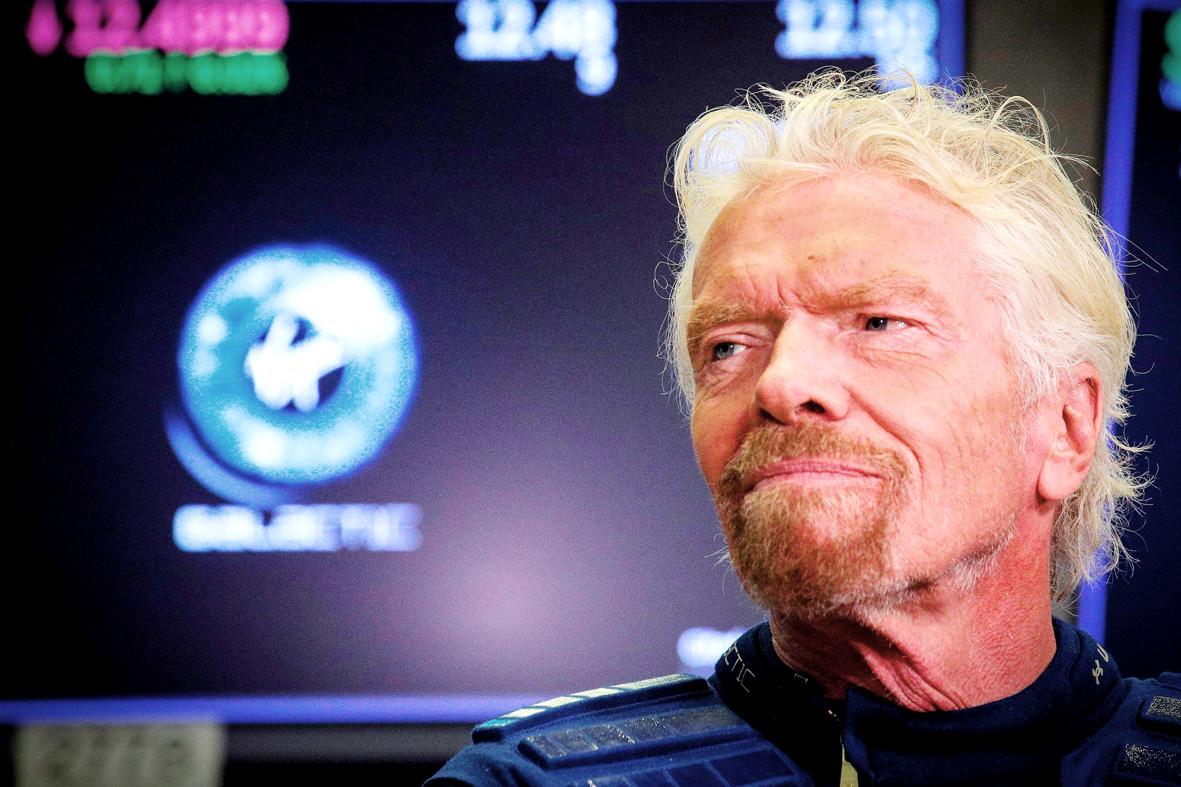British billionaire Richard Branson is seeking a buyer for Virgin Atlantic Airways Ltd as he struggles to secure a £500 million (US$618.5 million) government bailout, the Daily Telegraph reported.
Branson has set a deadline for the end of next month to save the UK airline from collapse and is focused on securing new private investment from more than 100 financial institutions, the newspaper quoted people familiar with the matter as saying.
“Houlihan Lokey has been appointed to assist the process, focusing on private-sector funding,” a Virgin Atlantic spokeswoman said. “Discussions with a number of stakeholders continue and are constructive, meanwhile the airline remains in a stable position.”

Photo: Reuters
Virgin’s application for government aid has effectively been shelved, although negotiations could be revived if investment cannot be found elsewhere, the newspaper reported.
About 50 investors have asked for information and they would be narrowed down to a handful of bidders, the report said.
Centerbridge Partners LLC, Cerberus Capital Management LP, Lansdowne Partners LP, Singaporean sovereign wealth fund Temasek Holdings Pte and Northill Capital LLP are among those in the running.
Delta Air Lines Inc, which owns a 49 percent stake in Virgin Atlantic and is consumed with its own pandemic-related problems, has already bumped up against UK limits on foreign airline ownership, Delta chief executive officer Ed Bastian said on Thursday.
Virgin Australia Holdings Ltd, another carrier Branson founded, entered voluntary administration last week after failing to obtain a state bailout.

Nvidia Corp chief executive officer Jensen Huang (黃仁勳) on Monday introduced the company’s latest supercomputer platform, featuring six new chips made by Taiwan Semiconductor Manufacturing Co (TSMC, 台積電), saying that it is now “in full production.” “If Vera Rubin is going to be in time for this year, it must be in production by now, and so, today I can tell you that Vera Rubin is in full production,” Huang said during his keynote speech at CES in Las Vegas. The rollout of six concurrent chips for Vera Rubin — the company’s next-generation artificial intelligence (AI) computing platform — marks a strategic

SEMICONDUCTORS: The German laser and plasma generator company will expand its local services as its specialized offerings support Taiwan’s semiconductor industries Trumpf SE + Co KG, a global leader in supplying laser technology and plasma generators used in chip production, is expanding its investments in Taiwan in an effort to deeply integrate into the global semiconductor supply chain in the pursuit of growth. The company, headquartered in Ditzingen, Germany, has invested significantly in a newly inaugurated regional technical center for plasma generators in Taoyuan, its latest expansion in Taiwan after being engaged in various industries for more than 25 years. The center, the first of its kind Trumpf built outside Germany, aims to serve customers from Taiwan, Japan, Southeast Asia and South Korea,

PRECEDENTED TIMES: In news that surely does not shock, AI and tech exports drove a banner for exports last year as Taiwan’s economic growth experienced a flood tide Taiwan’s exports delivered a blockbuster finish to last year with last month’s shipments rising at the second-highest pace on record as demand for artificial intelligence (AI) hardware and advanced computing remained strong, the Ministry of Finance said yesterday. Exports surged 43.4 percent from a year earlier to US$62.48 billion last month, extending growth to 26 consecutive months. Imports climbed 14.9 percent to US$43.04 billion, the second-highest monthly level historically, resulting in a trade surplus of US$19.43 billion — more than double that of the year before. Department of Statistics Director-General Beatrice Tsai (蔡美娜) described the performance as “surprisingly outstanding,” forecasting export growth

Gasoline and diesel prices at domestic fuel stations are to fall NT$0.2 per liter this week, down for a second consecutive week, CPC Corp, Taiwan (台灣中油) and Formosa Petrochemical Corp (台塑石化) announced yesterday. Effective today, gasoline prices at CPC and Formosa stations are to drop to NT$26.4, NT$27.9 and NT$29.9 per liter for 92, 95 and 98-octane unleaded gasoline respectively, the companies said in separate statements. The price of premium diesel is to fall to NT$24.8 per liter at CPC stations and NT$24.6 at Formosa pumps, they said. The price adjustments came even as international crude oil prices rose last week, as traders